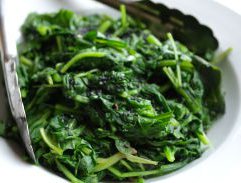Docosahexaenoic acid (DHA) is a type of omega 3 fatty acid chain which is important for most systems in our bodies.
 DHA is important for everything from brain function through to heart health and our nervous systems. Most clinically proven benefits for omega 3 actually come down to DHA.
DHA is important for everything from brain function through to heart health and our nervous systems. Most clinically proven benefits for omega 3 actually come down to DHA.
Which makes DHA very important indeed to our diets – because our bodies cannot produce it themselves.
Food Sources of DHA / Omega 3
Omega 3 can be found in a variety of food sources, but this list in particular have higher levels:-
- Oily Fish – wild salmon, herring, mackerel, anchovies, sardines, tuna, swordfish
- Nuts – walnuts, butternuts
- Seeds – flax seed / linseed, chia seeds
- ‘Boosted’ foods – such as ‘omega three eggs’
- Dark leafy vegetables – fresh basil, spinach, chinese broccoli
But it’s not quite that simple though, especially when we consider it’s the DHA that we are particularly interested in.
The amount of omega 3 and DHA in these foods varies a lot. Even between different types of fish.
Fish are however considered the best source of DHA as they contain up to 100 times more than non-marine sources such as dark green leafy vegetables, nuts, seeds and whole grains.
You’d have to eat a huge quantity of fresh lightly cooked spinach to match a fresh quality tuna steak. I love spinach but that’s a real challenge.
The Government Advice Hitch!
Unfortunately for our fish based DHA supplies, we’ve made a bit of a mess of our oceans. You might have noticed.
Nutritional advice says we should eat 2+ portions of those fantastic oily fish every week. But Government advice also tells us to AVOID more than twice a week because those are the very same fish at the biggest risk of being polluted by mercury, PCBs and other toxins we dump into our oceans!
And it’s this exact headache that makes doing the right thing for our own health and our families very difficult.
So What’s The Answer
Until we clean up our oceans the answer for me, and a lot of other people, was to switch to a daily dose of fish oil in capsule form.
Why? Because encapsulated fish oil can (and absolutely most definitely should!) be filtered to remove toxins.
Now I’m not a big fan of supplements – because most of them are just not necessary, if we eat reasonably well!
But this is one occasion where I see no other option. To get enough DHA into my diet every day, I can’t just eat healthily without risking my health from a build up of toxins like mercury.
If you choose to take this route too, please do read the label (I know you do anyway but I had to say it just in case!). Check the level of DHA in the capsules, and look for a minimum of 200mg. If it doesn’t say, be very suspicious. The ones I take contain 300mg per capsule, but the manufacturers also go the extra mile on quality, freshness and filtering for purity – which is why I finally chose them (after much research).
One day we may find a vegetable source that contains a good level of DHA in which case I’ll switch to that. But until then, or we fix our oceans, I’d rather take a one-a-day supplement that actually has some serious scientific backing.

